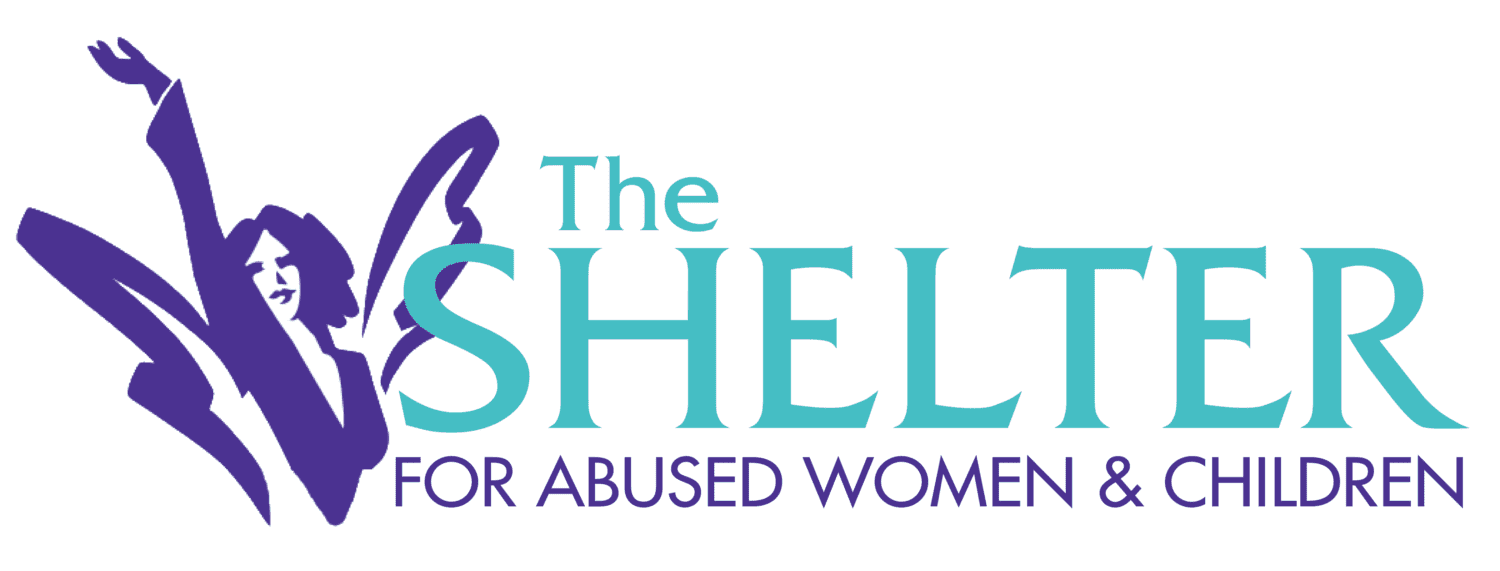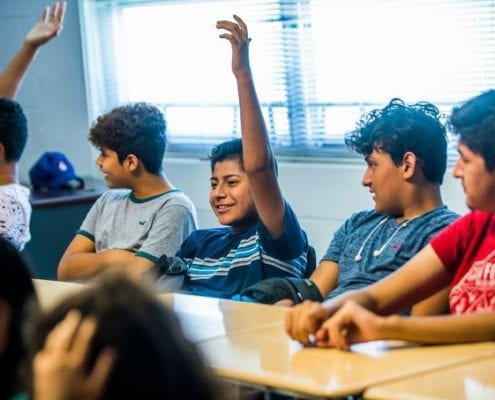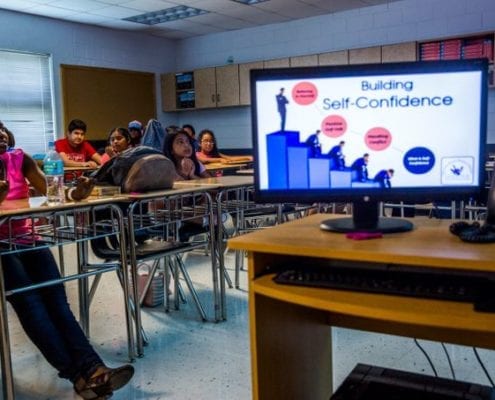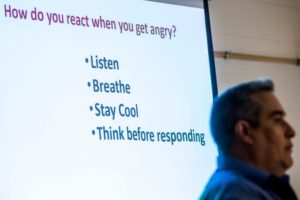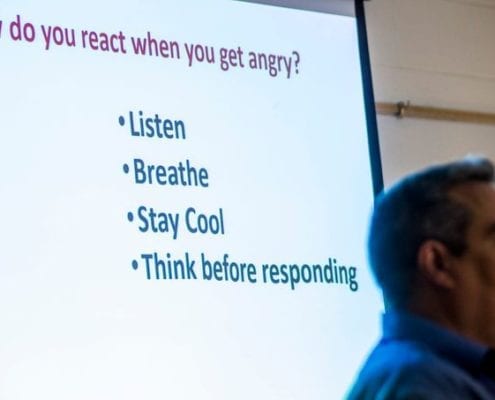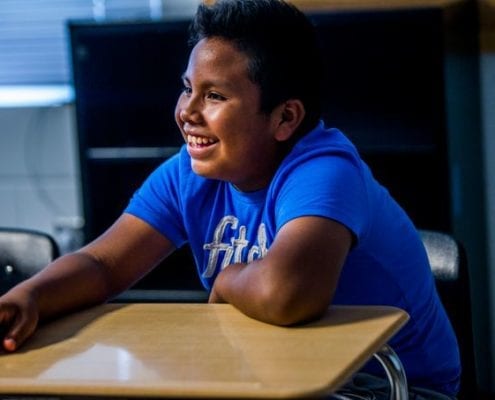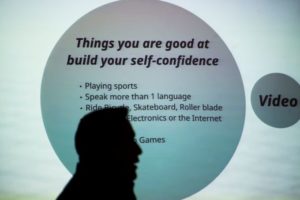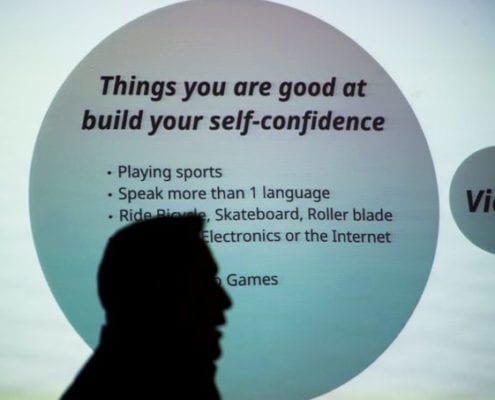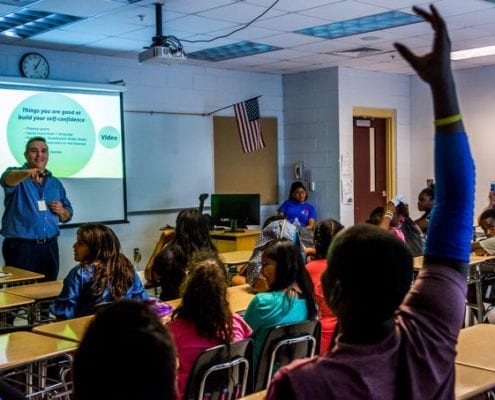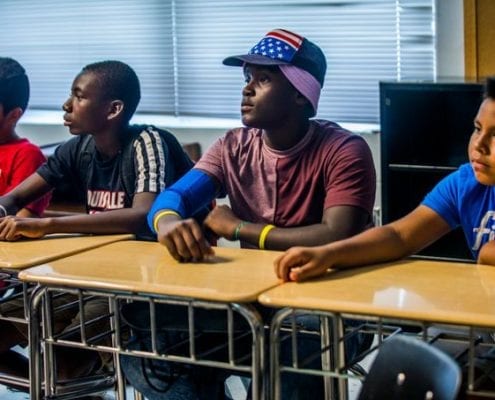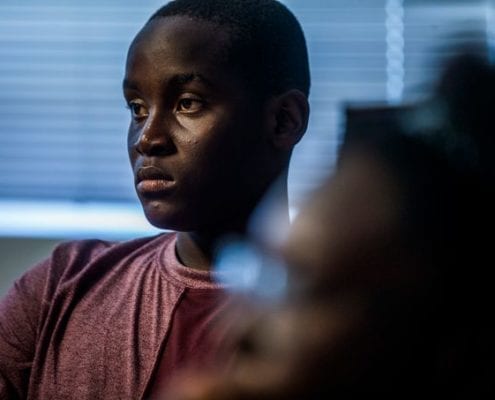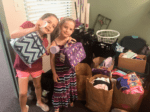Naples Daily News – What does it mean to be a man?
Steve Aguerrebere, Colin Estrem and Wardell Frazier share their thoughts on what it means to be a man.
By Katherine Hamilton
Naples Daily News
VIEW STORY IN PRINT
Jose Benitez and his family took refuge from his father at the Shelter for Abused Women & Children three years ago when he was 25 years old. He said his father became aggressive toward him because of his disability, speech troubles and the seizures he had from a young age.
During one of the assaults, Benitez said, his father hit him with a cable.
He begged his father to stop hitting him — but the scars on Benitez’s legs serve as a reminder of the trauma he suffered.
Domestic violence is often a cycle, but Benitez intends his family’s cycle to end with him.
“I want to be a better man, not an abusive man,” Benitez said, recalling what he has been through.
“To change society, we need to teach young boys how to respect women and not become abusers.”
Prevent domestic violence before it begins
The Shelter for Abused Women & Children does more than protect abuse victims like Benitez. It has an outreach program — Raising Gentle’men — to prevent domestic violence.
The program works by speaking to children, and specifically young men 8 years old through college-age — vulnerable members of society who have the capacity torepeat or break the cycle of abuse.
“Where do things start when you’re young? Through your experiences,” said Steve Aguerrebere, the Raising Gentle’men program advocate. “I like to share the Frederick Douglass quote: ‘It’s easier to build strong children than to repair broken men.’ ”
‘Be a man.’
Ninety percent of “systematic, persistent and injurious” violence is perpetrated by men, according to the National Institute of Justice, the research, development and evaluation agency of the U.S. Department of Justice.
Women are significantly more likely than men to report being victims of intimate partner violence, whether it is rape, stalking or physical assault and whether the time frame is the person’s lifetime or the previous 12 months, the NIJ’s National Family Violence Survey found.
The question being asked is “What does it mean to be a man?” in a society where much of the violence is perpetrated by men against women and where men feel that they cannot report abuse perpetrated against them.
Through an eight-week program, or a session-to-session program based on whom he is teaching, Aguerrebere has done well over 50 presentations at Collier County schools and has also done work with Grace Place, Youth Haven, Boys & Girls Club and the Florida Department of Juvenile Justice.
Each week, he teaches a one-hour session on a different topic, infused with relevant videos, pictures and discussions about the content they are learning.
Here are the lessons, in order:
- Stereotypes and Gender Equality
- Bullying and Abuse
- The Influential Media
- Unhealthy vs. Healthy Relationships
- More Than Just Words [learning about healthy communication]
- Character Building
- Human Trafficking Awareness
- Taking Action
The program exposes the children to the influences behind the people they look up to, the media they consume and the relationships around them, and it helps them to understand the larger societal forces at work in their lives and how to change them.
“The kids, when they heard about the stereotypes, they understood it. They were really against it, and they were like, ‘It’s unfair,’ ” said Laurie Paul, lead program assistant at Grace Place, after Aguerrbere finished a lesson with middle-school children for the summer program.
“The guys were like, ‘How about if I want to stay home? How about if I don’t want to go to work, but my wife does?’ And they really understand gender stereotypes and the role of the man.”
Young men are asking themselves exactly why its wrong to step outside what Aguerrebere calls “the bubble.”
According to a Department of Health and Human Services study on masculinity and its relationship to violence and sexual aggression toward women, males are socialized to reject the feminine and internalize anti-feminine qualities and attitudes in order to achieve perceived masculine dominance in society.
Thus, femininity in its entirety is seen as less desirable, inferior and sometimes threatening, leading to the devaluation of women, according to the study.
The same study found that typical masculine gender roles are positively associated with violence perpetrated against women — aggression is seen as the most obvious symbol of manhood and can be used to reaffirm masculinity if a man feels threatened.
Programs like Raising Gentle’men show young boys that these behaviors are not natural but are cultural and societal — society can change, and the change begins with them.
“All men should question their own attitudes and their own behaviors in regards to how men may disrespect or harm women,” said John Jordan, one of the founders of the Gentle’men Against Domestic Violence organization in Collier County. “They need to believe that the issue is real and to offer support. And really, they ought to be standing not only beside women on the issue, they ought to be taking the lead.”
The GADV hosts an event once a year that earns enough in donations to help The Shelter for Abused Women & Children fund the Raising Gentle’men program.
For Jordan, domestic violence is not only what he calls a “man’s issue” but also a personal one.
“I come from a family that experienced family abuse. My mother was a victim. I have three older siblings, so it’s always been something that has a personal foundation. Seventy years ago, when my mother and so many other women suffered in silence, … that was a time where society looked away from family abuse. It was considered a family matter. Today, it’s not considered a private family matter, it’s a society matter. It’s an injustice within communities that men need to stand with women, and they need to speak out.”
An estimated 5.3 million Intimate Partner Violence victimizations occur among U.S. women age 18 and older each year, the Centers for Disease Control and Prevention reported. This violence results in nearly 2 million injuries, more than 550,000 of which require medical attention, the CDC reported.
The movement to make domestic violence a men’s issue too doesn’t stop at trying to prevent men from becoming abusers — the “bystander effect” is under fire as well.
“I strongly believe that silence is not the friend of social injustice — it never has been and it never will be. If we don’t speak, we aren’t getting the message out there. If we don’t get the message out there, the injustice will continue,” said GADV founder Jordan.
“The voice of men on this issue can have a powerful effect in changing attitudes and social norms on domestic violence.
“The term ‘locker room talk’ should really not exist,” Jordan said.
From ‘broken inside’ to making a life
When he first arrived at the shelter, Jose Benitez could not speak. To communicate, he used a machine to type whatever he wanted to say, and the machine would talk for him.
He said he was “broken inside” — severely depressed, had low self-esteem and no confidence to speak for himself. He also struggled because English is his second language.
But things took a turn for the better.
“When he did his counseling, it helped him become empowered and then try to start talking — and he got really good at it,” said Maylen Garcia, one of Benitez’s advocates at The Shelter for Abused Women & Children.
“Then he started expressing his feelings and emotions and started talking about what he was going through.”
Now, Benitez has a stable job and is taking steps to make his dreams of doing computer repair work come true. He still lives with his family, helping to pay bills and do chores; the family sticks close together to overcome their obstacles.
In all of the chaos and trauma it took to get the family to a safe place, Benitez takes the time to make sure his mom knows she’s special.
“Every weekend, I take my mom to the movies and buy her flowers — to show my mom how much I love her.”
Where to get help
- The Shelter For Abused Women & Children 24/7 hotline: 239-775-1101; Office: 239-775-3862
- The National Domestic Violence 24/7 hotline: 1-800-799-7233
- Crisis Text Line: Text 741741 for free 24/7 crisis support in the U.S.
- CCSO: 911 for emergencies; Nonemergencies: 239-252-9300
CLICK ON THE THUMBNAILS BELOW TO VIEW A SLIDESHOW OF PHOTOS BY NAPLES DAILY NEWS
